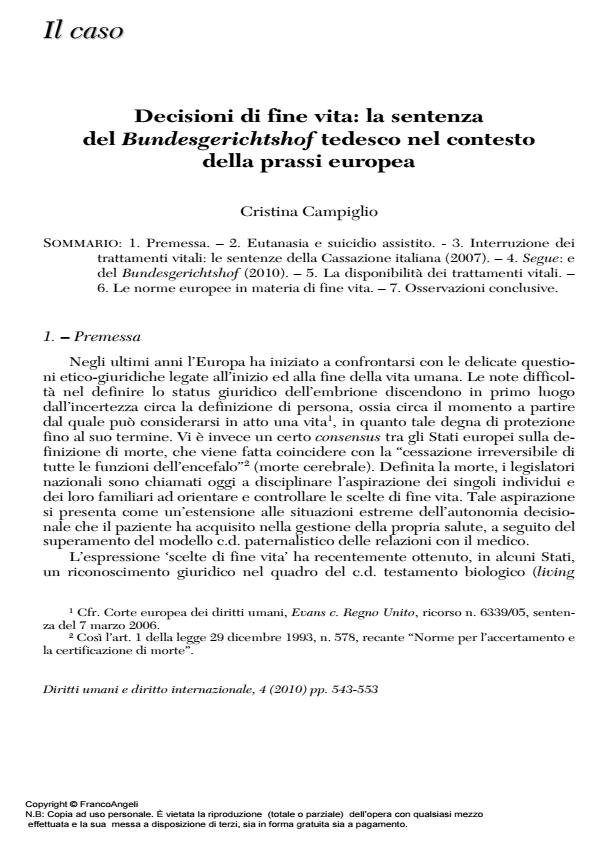Decisioni di fine vita: la sentenza del tedesco nel contesto della prassi europea
Titolo Rivista DIRITTI UMANI E DIRITTO INTERNAZIONALE
Autori/Curatori Cristina Campiglio
Anno di pubblicazione 2010 Fascicolo 2010/3
Lingua Italiano Numero pagine 11 P. 543-553 Dimensione file 385 KB
DOI 10.3280/DUDI2010-003004
Il DOI è il codice a barre della proprietà intellettuale: per saperne di più
clicca qui
Qui sotto puoi vedere in anteprima la prima pagina di questo articolo.
Se questo articolo ti interessa, lo puoi acquistare (e scaricare in formato pdf) seguendo le facili indicazioni per acquistare il download credit. Acquista Download Credits per scaricare questo Articolo in formato PDF

FrancoAngeli è membro della Publishers International Linking Association, Inc (PILA)associazione indipendente e non profit per facilitare (attraverso i servizi tecnologici implementati da CrossRef.org) l’accesso degli studiosi ai contenuti digitali nelle pubblicazioni professionali e scientifiche
The judgment on a case of passive euthanasia, released by the German Bundesge-richtshof on June 25th 2010, prompts an updated portrait of the European normative and case-law practice pertaining to the end-of-life decision - and specifically to the weight of advance directives, the so called living will. The international law framework is presently quite fuzzy: the principal point of reference continues to be the European Convention on Human Rights, that guarantees the right to respect for private life (article 8). The margin of appreciation left to Member States (article 8 par. 2) determines eventually a variety of solutions, in particular regarding the disposability of vital treatments.
- WYZWANIA PRAWA ROLNEGO. KILKA REFLEKSJI Roman Budzinowski, in Studia Iuridica /2023 pp.27
DOI: 10.31338/2544-3135.si.2022-94.2 - Advance Care Decision Making in Germany and Italy Angela Di Stasi, Rossana Palladino, pp.39 (ISBN:978-3-642-40554-9)
Cristina Campiglio, Decisioni di fine vita: la sentenza del tedesco nel contesto della prassi europea in "DIRITTI UMANI E DIRITTO INTERNAZIONALE" 3/2010, pp 543-553, DOI: 10.3280/DUDI2010-003004